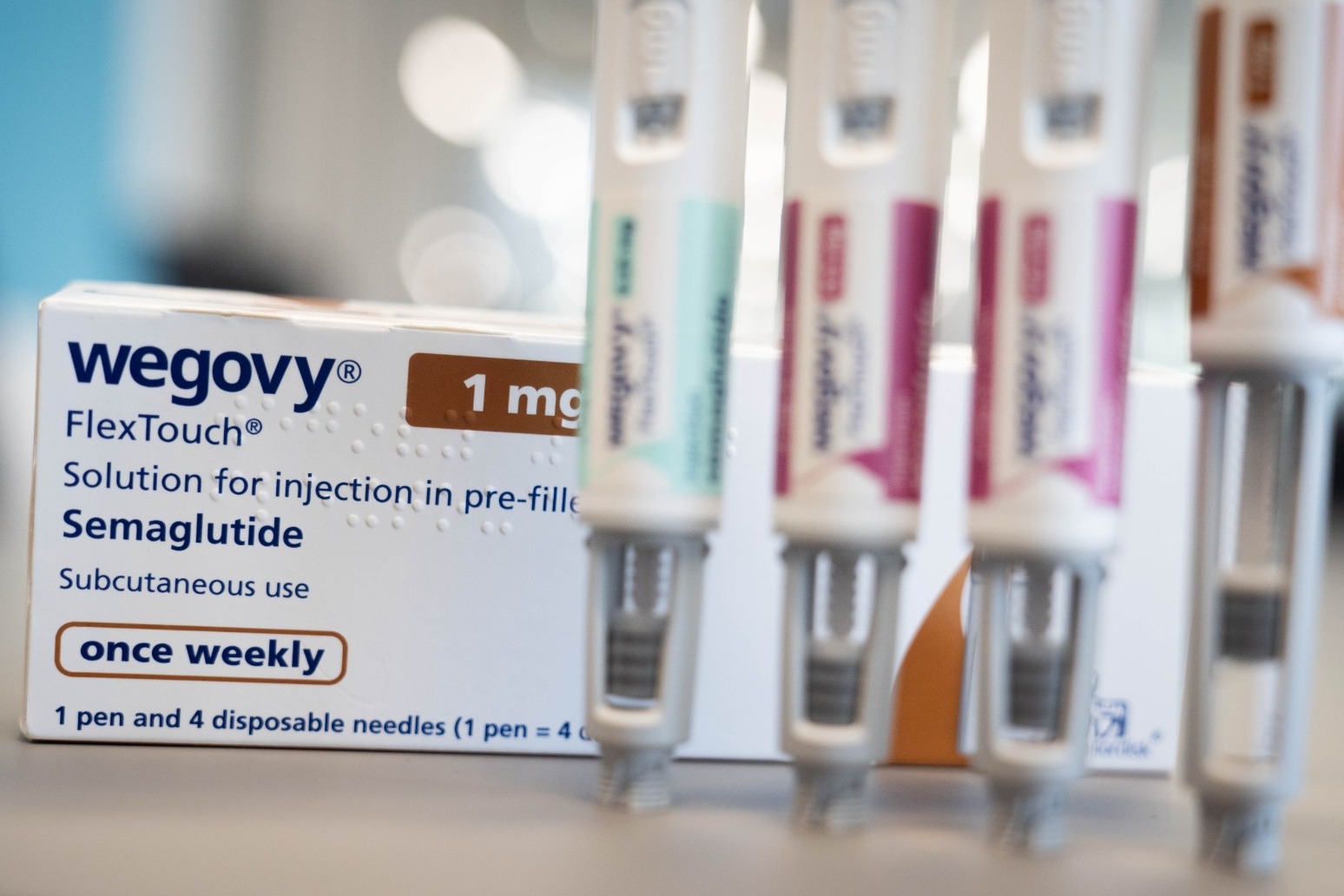-
 play_arrow
play_arrow
Kl 1 Radio Local radio for west Norfolk
-
 play_arrow
play_arrow
KL DISCO KL Disco Playing Disco Music from the 70's onwards.24/7
-
 play_arrow
play_arrow
KL COUNTRY KL COUNTRY Playing New and Classic Country Music 24/7
-
 play_arrow
play_arrow
KL ROX KL ROX The best of New and Classic Rock.24/7
-
 play_arrow
play_arrow
KL SUMMER Summer Vibes 24/7 from KL1 Radio across West Norfolk
-
 play_arrow
play_arrow
KL CLASSICAL Your Symphony Starts Here
-
 play_arrow
play_arrow
KL CHILL Just Chill!
-
 play_arrow
play_arrow
KL POP The Best POP Hits all day Long!
-
 play_arrow
play_arrow
KL XTRA KL XTRA
music_note

The weight-loss drug Wegovy slashes the risk of heart disease even before people shed pounds, data suggests.
The drug, which contains the active ingredient semaglutide, works by reducing food cravings and is available on the NHS for people with a high BMI, or via private providers.
New “landmark” data, presented by the manufacturer Novo Nordisk, shows Wegovy can protect against heart disease in the earliest stages, while also working to dramatically cut the risk of having a heart attack, stroke or early death in high-risk patients.
Analysis of a clinical trial found it reduced the risk of having a heart attack, stroke or heart disease death by 37% in people with obesity and cardiovascular disease within the first three months of treatment.
Furthermore, within six months of treatment, Wegovy reduced the risk of cardiovascular death by 50% and cut the risk of needing urgent treatment due to heart failure.
Analysis of the Select trial data on 17,604 people found Wegovy protected against heart disease even before people had lost clinically meaningful amounts of weight (considered as less than 5%).
This suggests the drug’s protection against heart disease is not only related to its effect on driving weight loss, researchers said.
The effect was also found before people had even moved on to the 2.4mg maintenance dose of the drug, which is a GLP-1 receptor agonist.
Professor Donna Ryan, from Pennington Biomedical Research Centre in Louisiana, US, said the effects on reducing the risk of heart attacks and stroke were seen “almost immediately” and before clinicians would expect patients to have lost weight.
She said the study, which she worked on, is “definite proof that we could reduce cardiovascular events in individuals who are at high risk for it”.
She said the drug had an effect “before you would expect weight loss, and it’s before you would even expect to see highest doses of semaglutide.
“So we’re starting to see this almost immediately.”
Prof Ryan added that the “interpretation of this for clinicians should be that we should not wait to start this drug if we want cardiovascular risk reduction in individuals who’ve had a heart attack, had a stroke or who have symptomatic peripheral artery disease – we are getting benefits early. There’s no need to wait. We should treat early.”
She said she expects “patients walk out of the cath (catheter) lab (and) get put on the medication”.
Asked if semaglutide should be given as a preventative medicine to those who have not had a heart attack or stroke, or showing signs of heart disease, she said: “There’s a big gap between suggesting and proving.”
She said using the drug in this way would require a “much bigger, longer, more expensive study”.
She added: “We may get some answers from that, from real world data, but I think it would be such an expensive and huge undertaking to show this preventative aspect, we would have to think about how to fund that.”
Dr Jorge Plutzky, lead study author and director of preventive cardiology at Brigham and Women’s Hospital at Harvard Medical School in the US, said: “Semaglutide 2.4mg is the only GLP-1 to have shown these early, rapid effects on heart disease, with benefits seen in the order of months, not years – underscoring its important role in clinical practice.”
He added: “Our findings reveal an early separation in the treatment effect of semaglutide that occurs even without a significant amount of weight lost and prior to full semaglutide titration.
“More research is needed to understand the mechanisms through which semaglutide produces these early clinical benefits, but they may include the drug’s positive effects on reducing inflammation, blood sugar, blood pressure, direct effects on the heart and blood vessels, early dietary changes, or an interaction among these or other responses.”
The Select trial is a randomised, double-blind trial looking at semaglutide 2.4mg versus placebo for the prevention of heart attacks, strokes and early death in people with established cardiovascular disease who are overweight or have obesity.
All have had a prior heart attack, stroke or peripheral artery disease.
Patients in the trial were already on other drugs such as for cholesterol and blood pressure, suggesting semaglutide had benefits on top of these.
– The study was presented at the European Congress on Obesity in Malaga, Spain.
Published: by Radio NewsHub

Similar posts
Upcoming shows

Richard Dix – KL1 Drive
4:00 pm - 7:00 pm

80’s ’til 8
7:00 pm - 8:00 pm

Gary Steele – Rock Show
8:00 pm - 11:00 pm

Night Trax
12:00 am - 7:00 am

Paul Baker – KL1 Breakfast
7:00 am - 10:00 am
Message Us
Copyright The Mediasite UK - 2025








